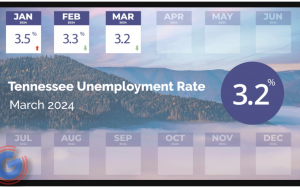Online platforms, video streaming services, and many other digital entertainment platforms have seen a significant surge in use over the past month. Whether for work or entertainment, the overwhelming fact is everyone is online more. Con artists have taken note and have concentrated on targeting streaming service users and video game players, along with their continuation to target online shoppers.
BBB experts say this is a perfect example of how good con artists are becoming at spoofing emails and websites (See above photo). They note that the brand colors and typeface are even correct for the company. However, when someone clicks on a link to view their account or to subscribe, they are taken to a spoofed website. They would then be asked to enter their credentials and update payment information.
"It looks so realistic, and it would be difficult for anyone to spot it as a fake initially," says Householder. "The fact that we see more phishing emails like this makes it imperative to always be on the lookout for suspicious red flags. For example, this recent email is sent from Hulu@Hulumail.com, which a company the size of Hulu will send emails from an account that has their domain name in it."
BBB recommends always looking at the sender of an email before responding or clicking a link, because it is normally the quickest way to tell if an email is legitimate or fake.
TIPS From the BBB:
• Think twice before you click. If you receive an unsolicited text or email asking you to click on a link, do not do it. Scammers are using links and attachments like these, that will download malware onto your electronic devices and steal personal information. Go directly to the source of the communication to verify if it is legitimate.
• Check spelling and domain name. If the last half of the email address that sent you the communication does not match the URL of the company, contact the company through their website, and search online to see if it is a scam. Also, look for other tell-tale signs such as poor grammar, lack of information, and capital letters in the middle of sentences.
• Beware unsolicited communication. When a company reaches out unsolicited, a real company will not force you to visit their site to access their message, nor will they make you download attachments.
• Be cautious of links in emails. Some links might be legitimate, but one way to check is to hover your mouse over the link to see where it is actually linked. If the URL looks weird, do not click and go directly to the company website.












